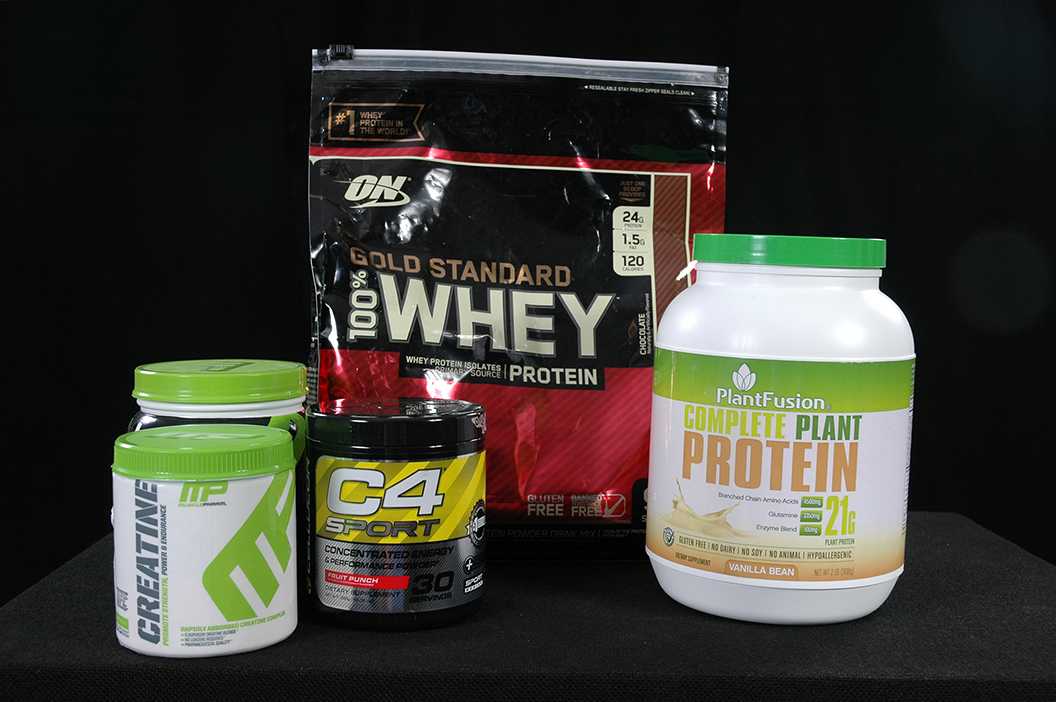Photo by Isaac Myers ’18 – Students often take a large amount of protein powder in an attempt to gain muscle, but Mr. Denk says that is not a necessity for students.
By Anthony Totri ’16
THE ROUNDUP
Over the last few years working out has become popular among not only student athletes, but students who aren’t involved in sports.
With more people working out comes more competition to be bigger, and stronger.
The seemingly addictive competition has resulted in many students using workout supplements and consuming as much protein as possible.
Head Athletic Trainer Mr. Chris White said he believes there is a time and a place for both supplementation and protein.
“My big concern is most people get too much protein,” Mr. White said. Before supplementation I always encourage everyone to analyze their diet.”
Strength and Conditioning coach Mr. Joe Denk said he believes there currently is not a huge need for protein powder among high school students.
“It’s not necessary at the high school level,” Mr. Denk said. “It’s important to be able to find sources of protein without a shortcut.”
Varsity football player Dante Diaz-Infante ’16, who said he consumes close to 230 grams of protein a day, has a different take on the issue.
“It’s used to help, not a shortcut,” Infante said.
A study conducted by Yale University argues that young males should not use supplements whether they help or not.
The study found a higher risk of testicular cancer in men who reported using more than one kind of supplement, in those who started using supplements before the age of 25, and in those who used supplements for three years or more, according to BodyBuilding.com.
Not only is there a higher risk of testicular cancer when taking supplements, but there are also some dangerous side effects when consuming excessive protein.
“Potential effects of excessive protein intake include dehydration secondary to high urea excretion, gout, liver and kidney damage, calcium loss, bloating and diarrhea,” according to the American Journal of Clinical Nutrition.
Shane Kirshner ’16, who does not play sports but said he consumes 200 plus grams of protein a day, works out to stay healthy.
“I think it is essential for people to use supplements if they are trying to gain muscle,” Kirshner said.
Mr. White said he believes supplements and certain protein powder can be beneficial, but they should only be used as a last resort.
“Analyze your diet first, see what you are getting and not getting in terms of nutrients,” Mr. White said. “If you are deficient, my advice would be to improve your diet. Thirdly, if you can’t get adequate nutrients, that’s the time to consider supplementation.”
Mr. Denk used protein powder while in college, but currently doesn’t use protein powder. However he said he does enjoy some protein bars and drinks, specifically, Pure Protein bars.
“I may not be scientifically correct in saying that it’s better for you, but I feel better eating them than gulping powders,” Mr. Denk said.



















